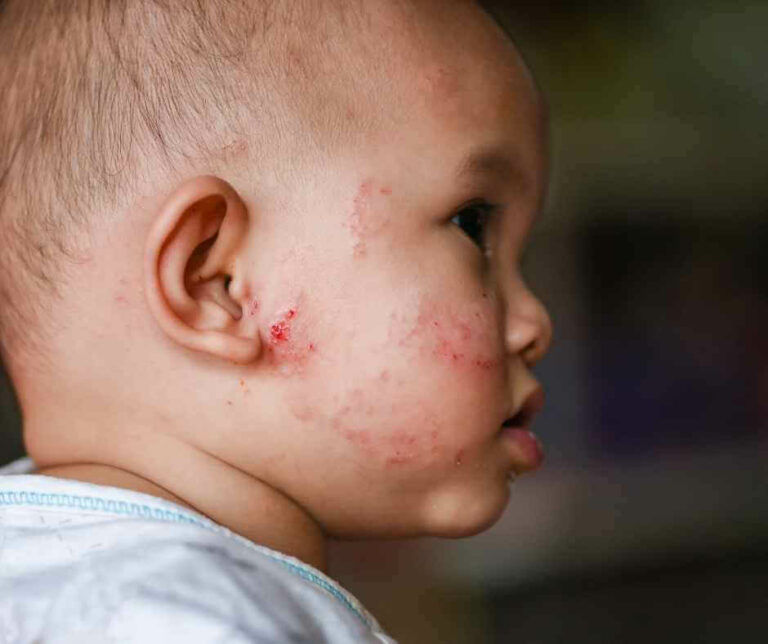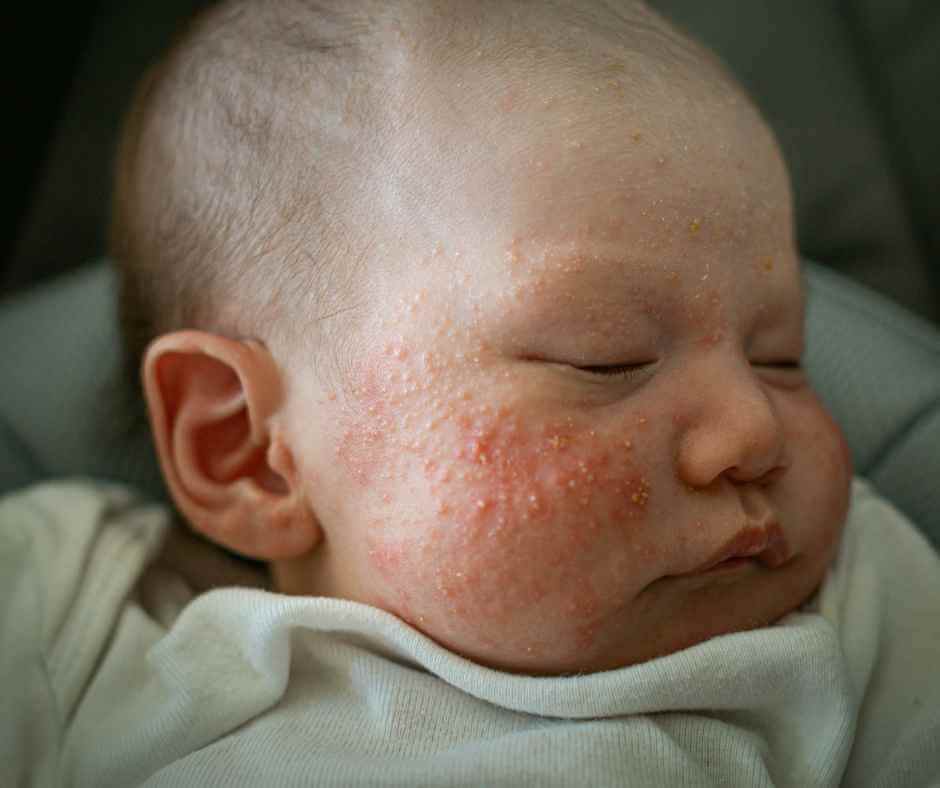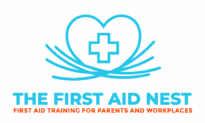Baby Eczema – Triggers and Treatments

Baby Eczema
Eczema (also known as atopic dermatitis) is most common in babies, in fact, it affects 1 in 5 children under the age of 2 years.
It can also occur in older children and adults but usually improves with age.
Although eczema can be effectively treated and managed, no cures are currently available.
Why people develop eczema, is still not well understood but it is common for people with eczema to develop allergies.
The skin in people who have eczema is different, the skin barrier does not work as well at retaining water and moisture is easily lost! And drinking more water, Unfortunately, is not necessarily going to help.
Baby Eczema Symptoms
It can appear like a red itchy rash, where the skin can ooze & flake. over time the skin can become rough & hard. When eczema gets worse it is termed an eczema flare.
Does Baby Eczema Ever Go Away?
Infantile eczema starts before 6 months of age and presents with the symptoms described above. It will usually improve significantly by age 2-5 years
Childhood eczema can sometimes follow on from this or may start between age 2-4 symptoms usually arise in the creases of the elbows & knees, ankles, face, ears & neck the good news is that this form of eczema usually gets better with age.

Eczema & Other Allergic Disorders
Many children with eczema will also have food allergies, dust mite allergies, asthma or hay fever.
Some studies have reported that up to 3 in 10 infants with eczema and a family history of allergy will develop food allergy and up to 4 in 10 develop asthma and/or hay fever.
Can Food Allergies Cause Eczema?
Many babies with moderate or severe eczema will have food allergies. This does not mean that if you remove that food, eczema will be cured.
In severe eczema, removal of some foods under medical supervision can result in an improvement in the skin but I cannot stress enough that this must only be done under an immunologist as cutting foods out of your child’s diet has many consequences if not done right.
When foods are taken out of a baby’s diet, it may increase their chance of developing a food allergy to that food, as we know that introducing common allergy foods early is a way to decrease food allergies in children under 1 year.
What Can Trigger Baby Eczema?
When the skin barrier is damaged, water evaporates so the skin becomes more susceptible to allergens and irritants, and this, in turn, can cause the skin to release the ‘itch’ chemical.
The more the child itches, the more chemical is released so the ‘scratch/itch’ cycle can be awful.
Some common triggers are:
- Scratching
- Dry skin
- Infections
- Swimming in chlorine
- Playing in sand
- Sitting on carpets or grass
- Pollen
- Food intolerances
- Perfumes
- Sudden temperature change
- Stress (although eczema is not a psychological condition)
Some Tips For Caring For Mild Baby Eczema Skin.
- Give a regular bath with lukewarm water. Hot water can actually dry the skin out even more, which is what we are trying to avoid.
- Washing just with water is fine, but if you want to use a product, avoid any products with perfumes, fragrances or alcohol.
- Do not use food products on the skin. The food products will end up in the bloodstream and the body can react badly to it by deciding it does not like or trust this food. This can result in food allergies.
- Always pat the skin dry after a bath or shower. If you rub the skin it can cause an eczema flare.
- Moisturise 2-3 times a day, even when the skin looks good! Use a cream rather than a lotion as this is best for eczema skin. Suggestions would be Dermeze, QV or E45.


Caring For a Baby’s Eczema Flare-up
- Steroid creams really are the best thing to reduce a baby’s eczema flare-up. They are very safe if used as directed by your doctor.
- They should be applied after the lukewarm bath and BEFORE the moisturising cream. If you apply the steroid after the cream, you have created a barrier that the steroid cannot get through. Do not mix the cream and steroid together either.
- The baby’s skin has different depths depending on the part of the body, so there may be slightly different potencies of steroids prescribed for the body, face and eyelids. The skin on the face is thinner and the eyelids are thinner still.
Here is an amazing ‘How much steroid do I use’ Guide. It is called the fingertip method.
Here are some other resources you may enjoy!
FREE GUIDE: The Nest Quick Reference Reaction Kit.
Get instant access to the:
Allergic reaction quick reference guide
How to spot allergy signs in babies & toddlers (it’s different!)
What to ask the Dr when they ask you to reintroduce a food
FREE GUIDE: The Nest Weaning Blueprint
Allergy Food Tracker
Keep calm and organised with a simple tracker that takes the stress out of introducing new foods, no more “did we try peanut yet?” panic.
Choking First Aid + Safe Food Prep Guide
Know exactly what to do in those critical seconds, calm, clear steps that replace fear with confidence.
Top 9 Allergy Foods Guide
Learn which foods matter most and how to prepare them safely, without confusing advice or second-guessing yourself.
Our Mum Memberships!
Ongoing support for mums of babies with food allergy, to guide you in those months between appointments, from a paeds allergy nurse who actually gets it
Weaning, choking and allergy help in 10-minute chunks, for mums who don’t have time to take another big course.
Follow for baby & child first aid and allergy info and tips on Instagram & TikTok, all @thenestcpr
Our First Aid Certificate Courses
We run most of the popular first aid courses Australia wide. HLTAID011 Provide First Aid, HLTAID009 Provide CPR, HLTAID012 Provide First Aid in an Education & Care Setting, RAMOAP (anaphylaxis), Mental Health first aid and CPR/LVR to name a few.
Book your public spot online or contact us if you have a group of 5+ people for onsite trainig
FREE Workplace Emergency Preparedness Plan: Grab this at the bottom of every page
